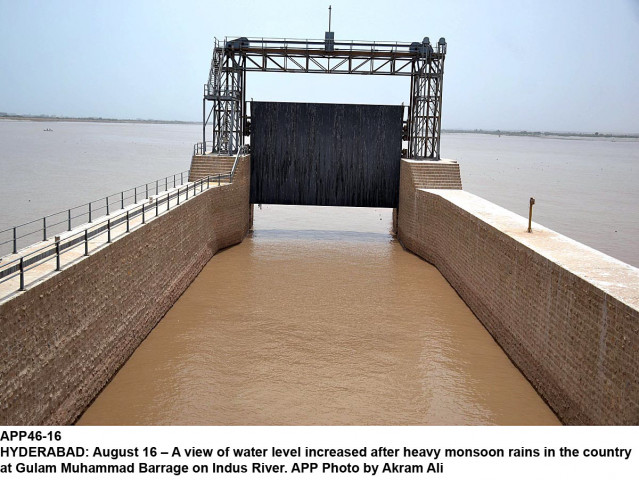Water management issues: ‘Indus Waters Treaty positive deal for Pakistan’
Pakistan faces serious challenges in sustainable water management

PHOTO: APP
This was said by Dr Geoff Podger, project director for the Indus Sustainable Development Investment Partnership (SDIP), while answering a question regarding India’s threat to scrap the Indus Water Treaty.
He was speaking on Thursday at a discussion on water management issues in Pakistan held at Australian High Commissioner Margaret Adamson’s residence.
It was attended by senior officials from the Commonwealth Scientific and Industrial Research Organisation (CSIRO), which is working with the Australian High Commission to develop capacity building of Pakistan on better water management and help the agriculture based economy and Pakistani water scientists who recently received training on water forecasting and management in Australia, funded by the high commission.
Dr Podger said it is a unique treaty and technically and politically it is difficult for India to do it.
“I have heard many people saying that Indus Water Treaty is a bad deal. My response is that any deal with a downstream country is a good deal, and if an upstream country largely honours it you should cherish that” he said.
Pakistan does not have any deal with Afghanistan and that’s a problem, he said. Pakistan needs to have some dialogue with Afghanistan on water coming from Kabul.
“That little burst of flow that comes out from Kabul is critical to the Indus system as it happens at a time when Pakistan needs water for crops. Therefore, during water distribution, even if this small proportion is used, it will have a big impact,” he said.
Pakistan needs to hold dialogue with Afghanistan, and as a downstream country, it should think how to be proactive and see what deal it could do, he said.
He further expressed grave concern over water availability and quality issues in Pakistan, saying that the country faces some significant challenges, with very low per capita water availability and a rapidly growing population.
A slightly prolonged dry spell in Pakistan could create havoc, he said, adding that the country is already facing an alarming water crisis.
“Climate change tells us that the wet season is going to be intense and longer in future and these are the things Pakistan needs to worry about,” he said.
He said that with just 30 days of water storage capacity, the dry season extending by just two to three days could have a huge impact on the country.
“Water shortage is and will have direct impact on crops, health, and ultimately on the economy of the country,” he said.
Another major problem Pakistan is currently facing is that it is taking groundwater out from the freshwater areas quicker than it is flowing back which in future will further worsen the water crisis issue in the country, he said.
He further said that Pakistan is facing serious challenges in sustainable water management both in surface and ground water resources.
Published in The Express Tribune, October 29th, 2016.



















COMMENTS
Comments are moderated and generally will be posted if they are on-topic and not abusive.
For more information, please see our Comments FAQ